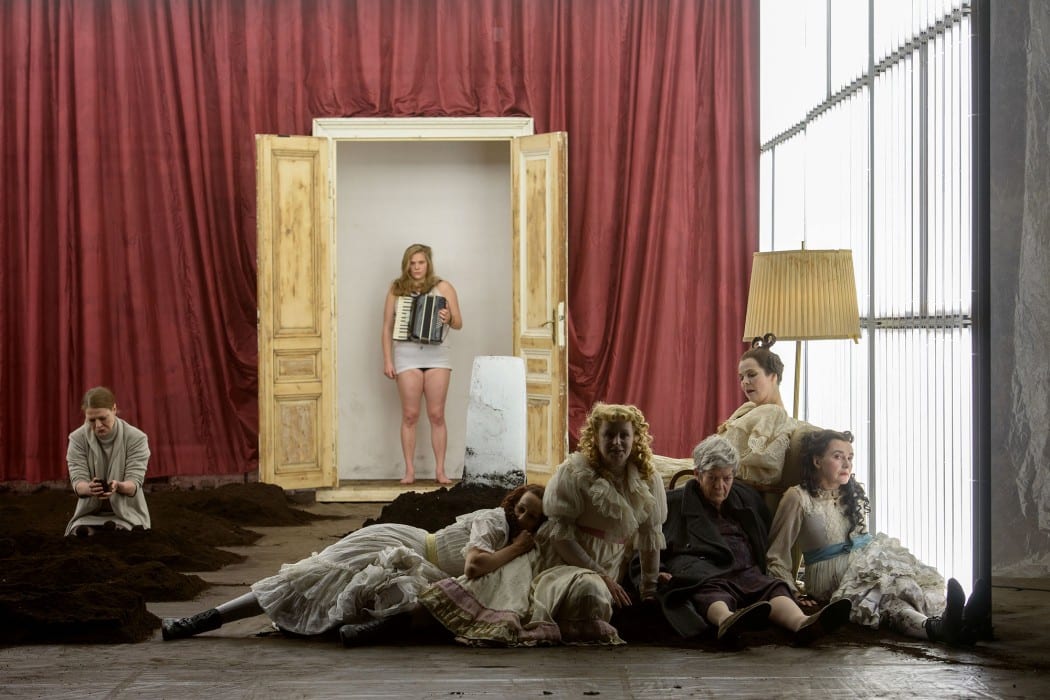Three women, three generations, an unresolved past that stinks of betrayal and blind obedience: “the unmarried” connects April 1945 with the present. Back then, a woman shopped a soldier to the Nazis after he had daydreamt in semi-public about deserting the army. This led to his death. Now the woman is old. She has an alienated daughter and a grand-daughter whom she feels closer to, even though the young woman is digging through her past. Four chorus-sisters establish Palmetshofer’s syntactically twisted narrative style. This challenging, antiquated artificial language consistently fulfils a specific task: It prevents the play from being prattled to shreds. It is a sight to see how the three actresses in Robert Borgmann’s production toil away at the leaden silence that shapes the lives of many families. Christiane von Poelnitz (the middle one) expects nothing but incomprehension from her life. The young one (Stefanie Reinsperger) floats between the eras with her accordion, sometimes as herself and sometimes as her grandmother’s shadow. And Elisabeth Orth (the old one) skillfully sports the truculent pout of a woman who, after all, only obeyed the law back then and could never ever even think of doing anything bad.

